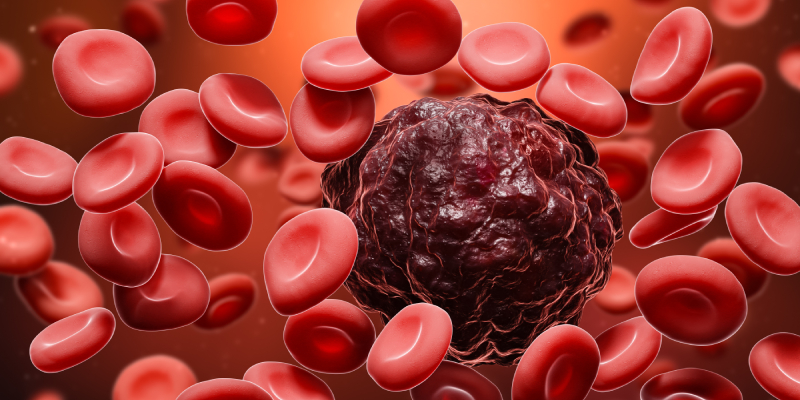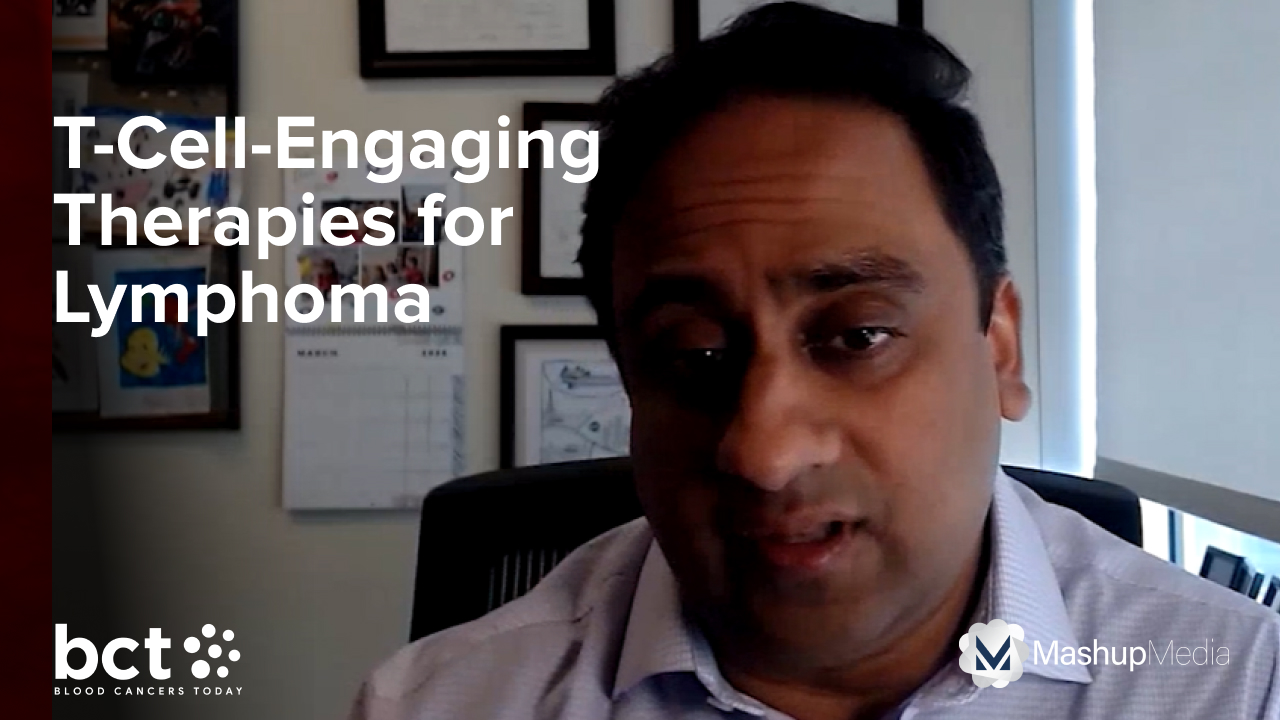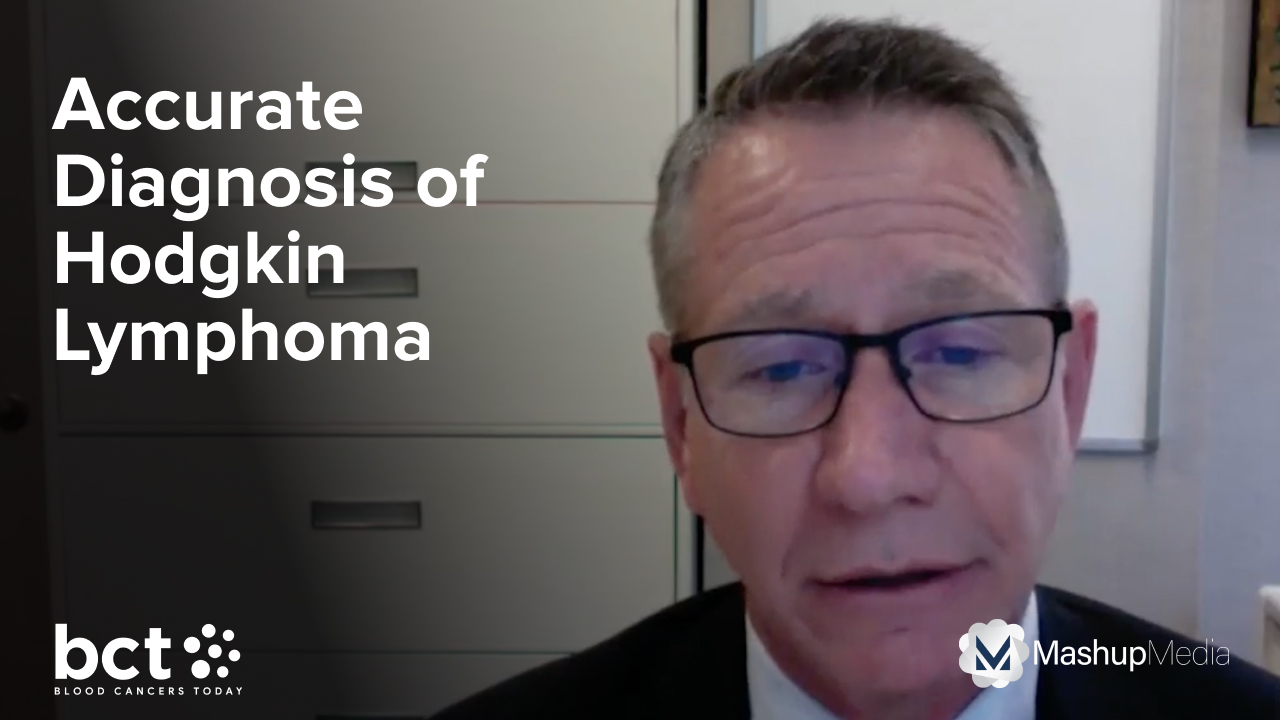
Adolescent and adult patients with stage III or IV advanced-stage classic Hodgkin lymphoma had a significantly longer progression-free survival (PFS) on treatment with nivolumab in combination with doxorubicine, vinblatine, and dacarabine (N+AVD) compared to the combination of bretuximab vedotin plus AVD (BV+AVD), according to published results from the phase 3 SWOG S1826 study (NCT03907488).1
“SWOG S1826 found that [N+AVD] is both better tolerated and more effective than [BV+AVD] in advanced stage classic Hodgkin lymphoma. As a result, the standard of care for most patients with this disease is becoming [N+AVD] for six cycles,” Sarah Rutherford, MD of Weil Cornell Medicine told Blood Cancers Today.
Of the 970 patients in the intention-to-treat population, the median follow up was 12.1 months (range, 0-38.6 months). The N+AVD treatment arm achieved a PFS rate of 94% (95% CI, 91-96) at the one-year mark compared to 86% (95% CI, 82-90) with BV+AVD (HR, 0.48; 99% CI, 0.27-0.87; two-sided P=.001). The two-year PFS was 92% (95% CI, 89 -94) with N+AVD versus 83% (95% CI, 79-86) with BV+AVD (HR, 0.45; 95% CI, 0.30-0.65), at a median of 2.1 years of follow-up. Primary outcome results in the prespecified patient subgroups were consistent with the general study population.
Patients in the N+AVD arm had a 2-year event-free survival of 90% versus 81% in the BV+AVD arm (stratified HR, 0.50; 95% CI, 0.36-0.71). The 2-year overall survival observed was 99% in the N+AVD arm versus 98% in the BV+AVD arm (HR, 0.39; 95% CI, 0.15-1.03).
SWOG S1826 investigators also noted that N+AVD displayed a better safety profile compared to BV+AVD. The most common adverse events observed in the N+AVD arm versus the BV+AVD arm were nausea (65% vs 70%), fatigue (47% vs 51%), anemia (56% vs 34%), and decrease in neutrophil count (56% vs 34%), respectively.
“A randomized trial [KEYNOTE-204; NCT02684292] of PD-1 blockade as compared with brentuximab vedotin monotherapy in patients with relapsed or refractory Hodgkin’s lymphoma showed improved progression-free survival with PD-1 blockade2,” wrote study authors led by Alex Herrera, MD, in the New England Journal of Medicine. “The results of our trial are consistent with that result, with PD-1 blockade being more effective than brentuximab vedotin when combined with chemotherapy in advanced-stage Hodgkin’s lymphoma.1”
Based on these findings, N+AVD may help avoid the toxicities sometimes associated with consolidative radiation therapy. Further, investigators note that the addition of N+AVD to the treatment armamentarium for stage III or IV advanced-stage classic Hodgkin lymphoma may lower costs of drug acquisition.
1 Herrera A, LeBlanc M, Castellino S, et al. Nivolumab+AVD in advanced-stage classic hodgkin’s lymphoma. N Engl J Med. 2024;391:1379-1389 (15). doi: 10.1056/NEJMoa2405888
2 Kuruvilla J, Ramchandren R, Santoro A, et al. Pembrolizumab versus brentuximab vedotin in relapsed or refractory classical Hodgkin lymphoma (KEYNOTE-204): an interim analysis of a multicentre, randomised, open-label, phase 3 study. Lancet Oncol. 2021;22:512-524. doi: 10.1016/S1470-2045(21)00005-X






 © 2025 Mashup Media, LLC, a Formedics Property. All Rights Reserved.
© 2025 Mashup Media, LLC, a Formedics Property. All Rights Reserved.